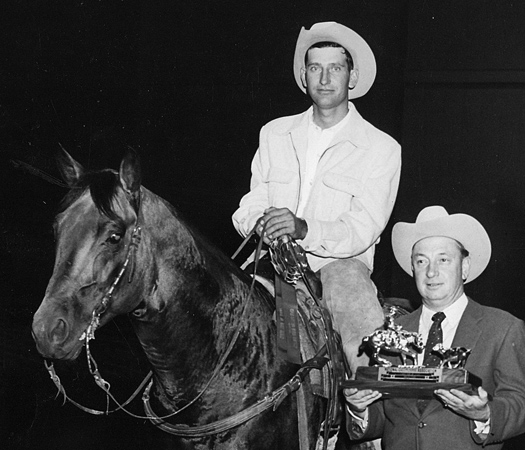
NCHA Hall of Fame Rider Jack Newton, 90, of Keller, Texas, passed away Sunday.
Newton was a World Champion cutting horse rider, a long-serving NCHA judge, a mentor to a new generation of trainers and a top roper. He adapted an idea from the bird dog world, lobbied against strong resistance and finally helped launch what is today cutting’s signature event, the NCHA Futurity.
Newton grew up on a cotton farm near Abilene, Texas, but at 15 went to work for his uncle, Guy Weeks, who sold Thoroughbreds as polo ponies and to the U.S. Army, and kept 5,000 mother cows.
“They made good ranch horses,” Newton said of the Thoroughbreds. “We’d use them working cattle and whatever we had to do. They were six or seven before the polo players would want them, and they knew if the horses had been working cattle, they were broke pretty good.”
Newton met George Glascock, NCHA’s first World Champion, who would buy cattle from Weeks. And Glascock mentored him as Newton took a mare named Guthrie Ann to the 1951 Fort Worth Stock Show. While he was showing Guthrie Ann for oilman G.F. Rhodes, Newton broke tradition and held onto the saddle horn and lowered his rein hand.
“Very seldom would you see anyone ride with his hand down,” Newton recalled. “He’d have his hand up over that horn.”
But other riders began to follow suit, and now you’d be hard-pressed to find a cutter riding in the old style.
In the late 1950s, Newton showed Poco Stampede, who would become the 1959 NCHA World Champion. At a big show in Odessa, Texas, he won the AQHA cutting, the open cutting and was grand champion at halter.
“Poco Stampede could hold a real bad cow,” Newtwon said. “I would watch and if there was a bad cow in there that got away from somebody else, I’d cut it.”
Newton told the story of a cutting held on the infield of a racetrack, where Poco Stampede followed a calf over the snow fence which had been set up to hold the cattle. “We were outside the arena holding that calf,” he said. “They didn’t know whether to let me have another ride or what. Finally someone said, ‘Well, he didn’t lose the cow.'”
As a member of the NCHA executive committee in the early 1960s, Newton pushed for a new event for 3-year-old horses, the NCHA Futurity.
“We had to come up with something,” he said. “We didn’t have anywhere to go with a young horse. We could put them in a junior cutting and that was it, In a novice class, a horse might have to win against horses that were seven or eight years old.â€
Newton found an ally in Buster Welch, who would go on to win the NCHA Futurity a record five times.
“We had to go out and get people to donate money for the purse at the first Futurity,†Newton said. “NCHA wouldn’t help us. But when the first one was over, they let us have money for the next one.
“When we started, Buster and I tried to figure out how to come up with $100,000 for the winner. Back then, a World Champion won less than $12,000. The Futurity is what kept us going. All these aged events are spin-offs of the Futurity.â€
Newton showed Commander King for James Kemp, and he bred and trained a Commander King son named Dun Commander that won 20 all-around titles with points in halter, reining, roping, western pleasure and cutting.
He was also the first rider to put two horses, Poco Stampede and Swen Miss 16, into the NCHA Hall of Fame. Newton was inducted into the NCHA Riders Hall of Fame in 1989.
“I feel real fortunate,” Netwon told me in 1995. “There are so many people that work five days a week, and when they get a chance, they come out here and do for fun what I do for a living. I may not make much, but I’m making a living doing what I like to do.”
There will be a memorial service for Jack Newton on Sunday, May 1 at 2:00pm at Clay Johns Cutting Horse Arena, 151 Johns Lane, Millsap, Texas 76066.
